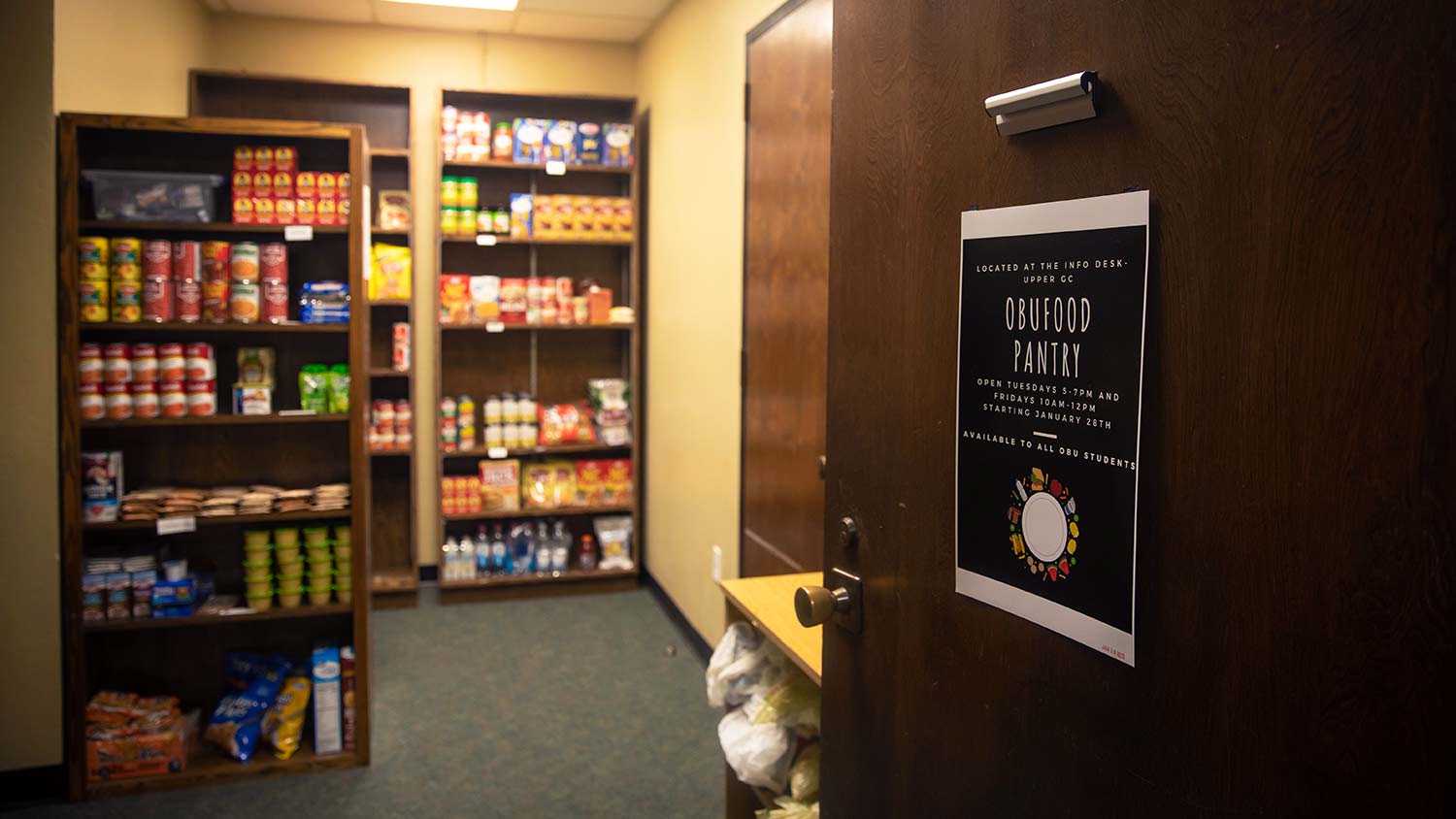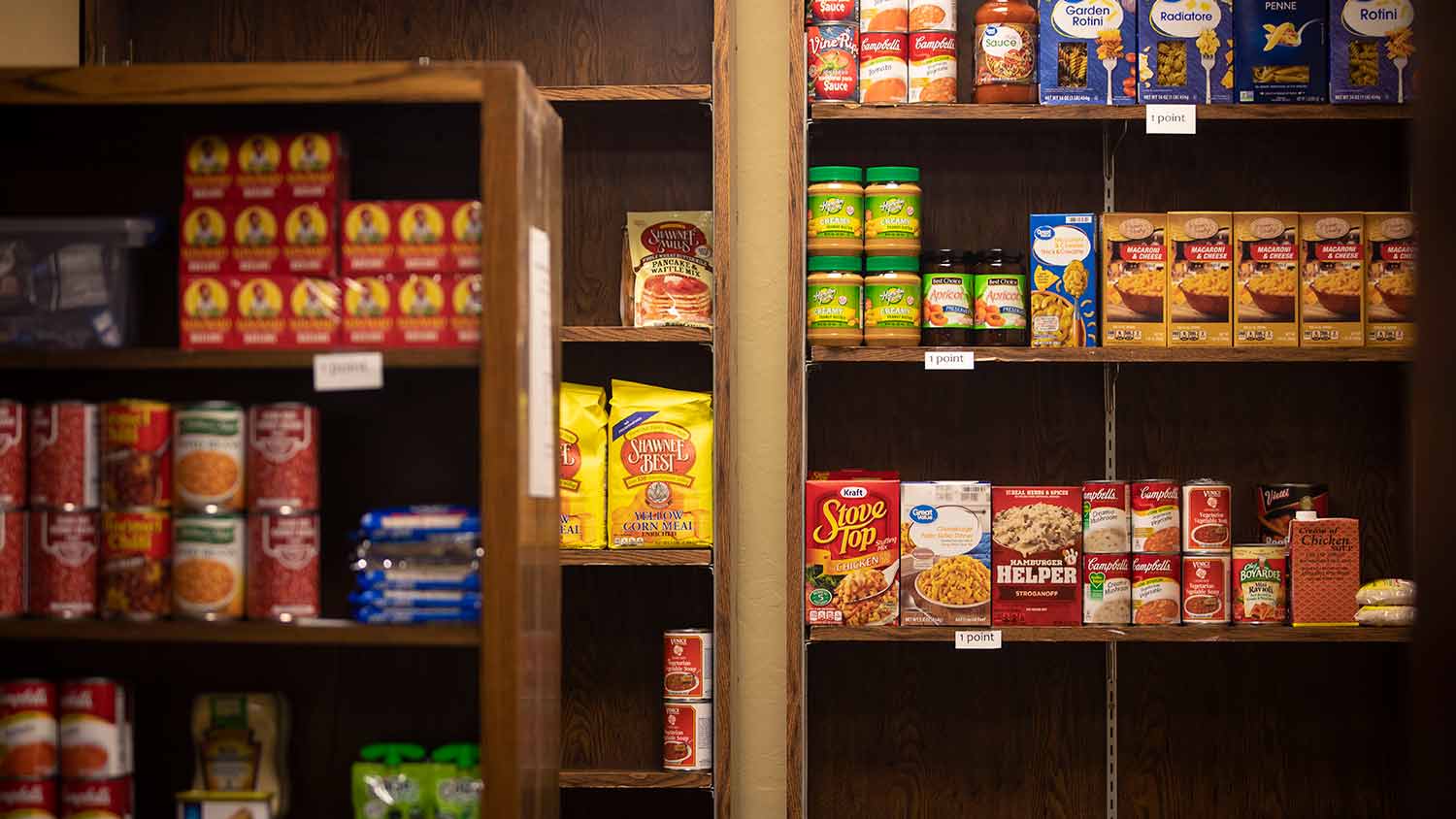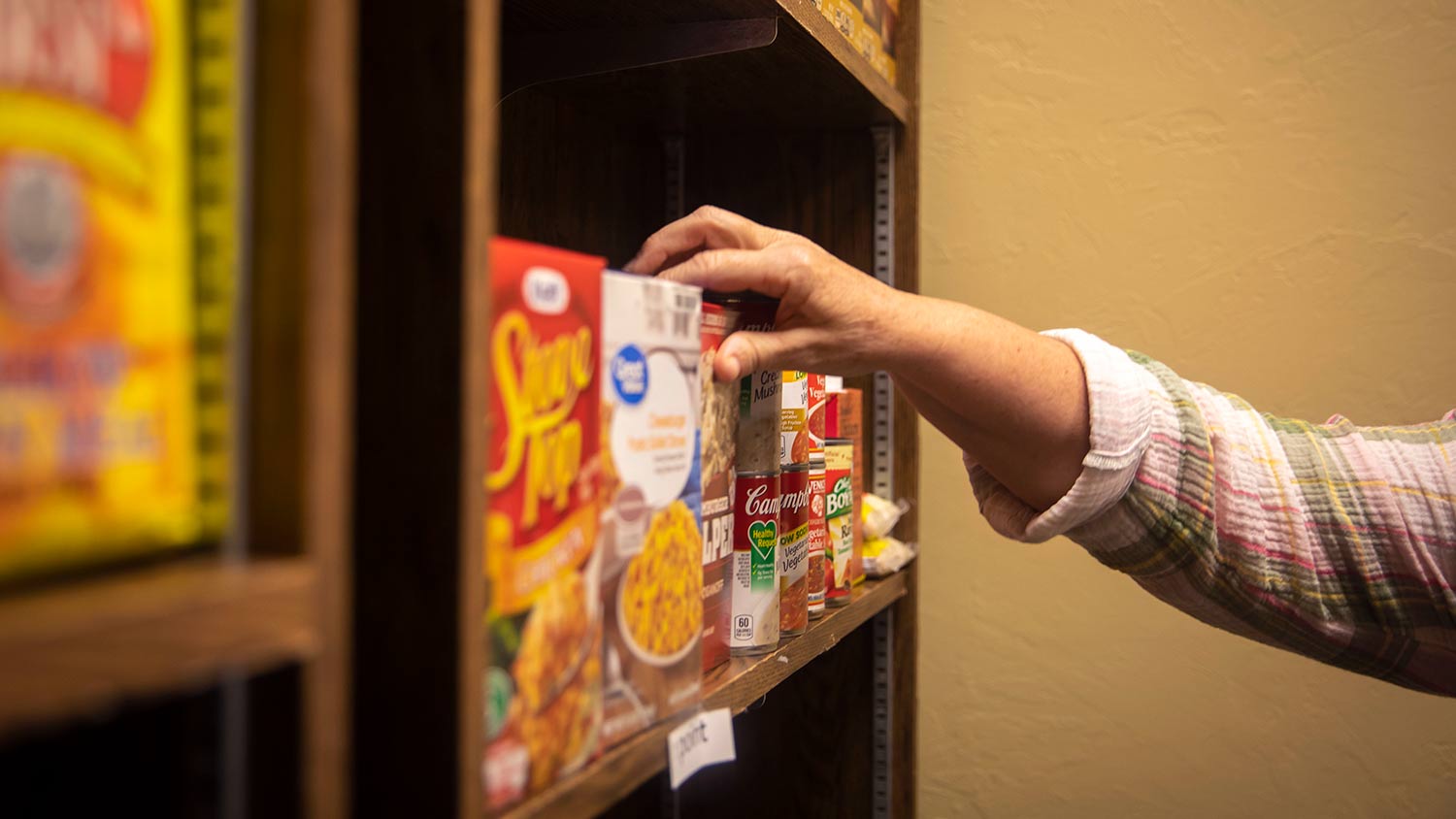Food Pantry Provides Food Security to University Students
September 29, 2020
Food security is a major issue on college campuses around the country. While it may come as a surprise to some, this is no different on Bison Hill. Many students hit times during the week and during the semester where they may need a little help with extra food to get through a weekend or bridge gaps between meals on their meal plan. That’s where the “Good Things Food Pantry” comes in.
The Good Things Food Pantry provides OBU students with needed food items in order to promote success inside and outside the classroom. The food pantry is located on the second floor of the Geiger Center behind the information desk and is open to all OBU students.
The Good Things Food Pantry opened in February 2020. It was launched by Cynthia Gates, director of events, conferences and camps at OBU. The idea for the food pantry began when she learned of a student who was working as summer staff on campus and who had not eaten for three days, prompting her and others to provide some aid. However, the help they could provide was limited due to NCAA regulations. So, she began researching food pantries for colleges and found a national organization of pantries at college campuses. During her research, Gates contacted Mary Hardin Baylor University, which had recently opened a food pantry, to ask questions and inquire about best practices in running a campus food pantry.
Student usage and response to OBU’s Good Things Food Pantry has been extremely positive from the very beginning. In the few weeks leading up to spring break 2020, the food pantry served 146 students. These students came from all backgrounds and majors, including international students, MKs (missionary kids), first generation college students and athletes.
The food pantry is open to all OBU students and is run on a simple points system. Every food item in the pantry is assigned one point. Students are allowed ten points per week and can get food from the pantry once a week.
“Nationwide, food insecurities on college campuses touch about 40 percent of students,” Gates said. “OBU conducted a survey last fall and found out that 32 percent of our students had experienced some type of food insecurities. That's a significant number, and if we can help students not worry about food, they can be more successful in the classroom and other areas of their lives.”
This year, the food pantry’s mission is being aided by volunteers, spearheaded by Enactus, a team of OBU students who aspire to serve local and global ministries by promoting entrepreneurial action and sustainability. Prospective volunteers may help with tasks like taking inventory and packing student boxes.
When asked about modifications made to the pantry due to COVID, Gates said, “The biggest difference now is how we distribute the food. Before the pandemic, students were able to choose items like a grocery store. Now, we have an online order form and volunteers fill the orders, much like if you ordered groceries online at Walmart.”
Another difficulty posed by the pandemic is food supply.
“Before quarantine, The Community Market used OBU as a satellite and provided food for the pantry,” Gates said. “Since the pandemic began, however, they have been hit hard.”
As a result, Gates launched a fundraising effort through the the OBU development office, sending out several thousand letters to alumni asking for donations to support the food pantry. A restricted fund is set up for donations for food purchases, creating a source of revenue that can support the pantry in the future.
Good Things also accepts food donations. Items that are most needed include shelf-stable products, such as canned meat, pasta and canned vegetables. Gates added that some of the most in-demand items from students include Ramen noodles, soups, canned tuna or chicken, Hamburger helper-type meals, pasta, spaghetti sauce, ravioli, cereal, juice, peanut butter and jelly.
A food drive is being held Sept. 28-Oct. 2, featuring a campuswide competition among academic colleges. Students and employees are encouraged to bring the following items during the drive, divided per college:
Business: Breakfast items, such as granola bars, breakfast bars, Pop-Tarts, cereal and instant oatmeal
Fine Arts and Undecided Majors: Pasta and sauces
Humanities and Social Sciences: Peanut butter, jelly, crackers and canned fruits
Nursing: Canned veggies, dried rice and dried beans
Science and Mathematics: Boxed dinners and canned meats
Theology and Ministry: Grab and go style snacks (nuts, fruit snacks, crackers, cookies)
Food donations may be brought to GC 209 or dropped off at collection bins in the lobby of Bailey Business Center.


